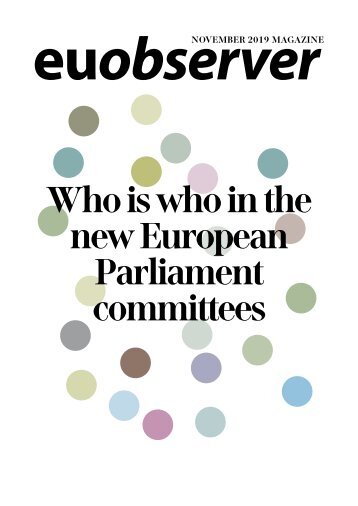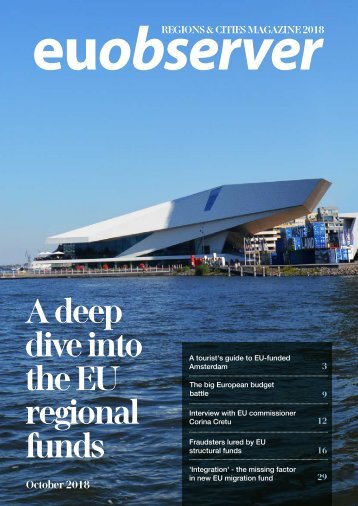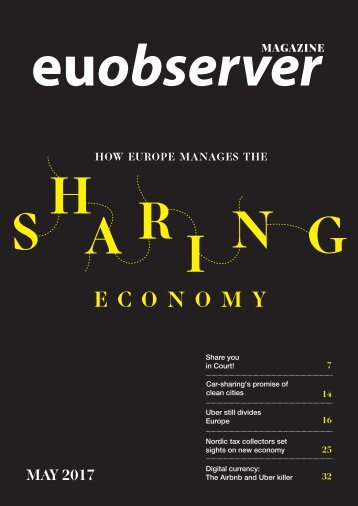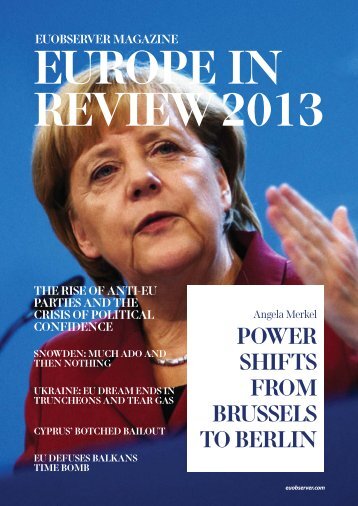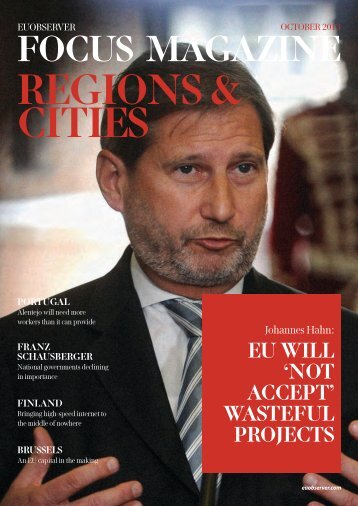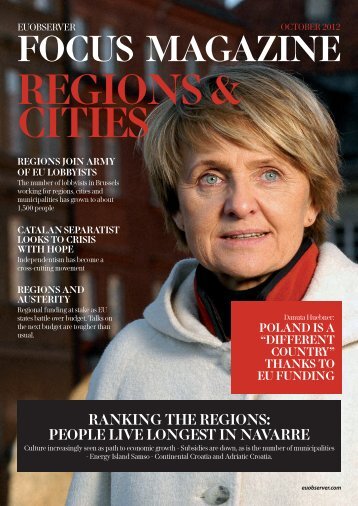Regions & Cities: The EU Agencies Race
- Text
- Regions
- Agencies
LESSONS LEARNED FROM
LESSONS LEARNED FROM CEPOL'S SOFT BREXIT A decision by Theresa May, when she was home secretary, prompted the move of Cepol, the EU's police academy, from Bramshill to Budapest. The decisionmaking was long, and the move offered some lessons. y ter aa Theresa May has already presided over a Brexit. It was a small dress rehearsal for what is coming in March 2019, when the UK leaves the EU, and holds some valuable lessons for the real deal. May, during her time as home secretary, decided to sell the land in Bramshill where Cepol, the European Union Agency for Law Enforcement Training, was located, the continent. 32 — REGIONS & CITIES OCTOBER 2017
British home in Bramshill. Photo: Leoaretey but it is also a novelty - it Photo: aieorath police training, of her intentions in December 2012 and the news soon was relayed to employees. A long legislative process ensued in the EU, as the European Commission was hoping that the move could give impetus to an earlier plan of merging Cepol with Europol, the EU's police agency. But that came to nothing. Soon after, seven member states scrambled to relocate Cepol, with only Hungary's capital, Budapest, applying from the "new" member states. the local cost of living. SOFT EXIT AND LANDING Although the decision was known for years, legislative and political wrangling left Cepol employees with little time to prepare for the move. "It is a big move in everybody's life," Dr Stefano Failla, the deputy head of training and research at Cepol, told EUobserver. He had been involved in the agency's relocation from Budapest. Based on an earlier understanding that new member states receive preference to host EU agencies whenever possible, and because Hungarian authorities practically offered the site for free, Budapest won. The Council of the EU, the body representing national governments, agreed in 2013 and, with the European Parliament's consent, the There were debates in the EU parliament on whether a country like Hungary, with a patchy track record on the rule of law, should be the host for the policy academy. But those political concerns were dismissed. Based on the latest EU parliament audit, the relocation from Bramshill to Budapest costed approximately € 1,006,515. the EU commission equally, and the rest of the money came from Cepol via savings from its budget in the new low-cost location. The move to Hungary meant reductions in wages of EU workers, due to the so-called correction Several staff meetings were held in 2012 and 2013 about the relocation, but the precise timeline was only given in 2014 - the year the European Court of Justice (ECJ). Four struck an amicable deal but three went to trial - partly because their salaries were cut to match Hungary's lower cost of living. But they also argued that the month notice they were given to make a decision on whether they The employees lost their case when the ECJ ruled in 2016 that reassignment of an EU "abnormal and unforeseeable" event in his or her career. The EU rules also provided for extra money to move - a reimbursement of relocation and travel costs. The three, who still work at the agency, appealed the decision. REGIONS & CITIES OCTOBER 2017— 33
- Page 1 and 2: REGIONS & CITIES MAGAZINE London
- Page 3 and 4: London prepares to say goodbye to E
- Page 5 and 6: and conferences. Securing the reloc
- Page 7 and 8: Photo: ta s the road and we are pro
- Page 9 and 10: Photo: undertakings are largely u
- Page 11 and 12: REGIONS & CITIES OCTOBER 2017— 11
- Page 13 and 14: Photo: Baaa decide to put the Unit
- Page 15 and 16: Verhofstadt (r) and other EU leader
- Page 17 and 18: were set up, including the European
- Page 19 and 20: people are happy and we don't have
- Page 21 and 22: Photo: Aeey ooyaiy spaces in the c
- Page 23 and 24: Photo: roeaommiio It is also next t
- Page 25 and 26: CYCLING Accessibility is one of the
- Page 27 and 28: CONSTRUCTION EQUIPMENT SECTOR IN EU
- Page 29 and 30: Five kilometres north of Alicante a
- Page 31: Mediterranean coastline. According
- Page 35 and 36: Coming to work in a country with 20
Inappropriate
Loading...
Mail this publication
Loading...
Embed
Loading...





